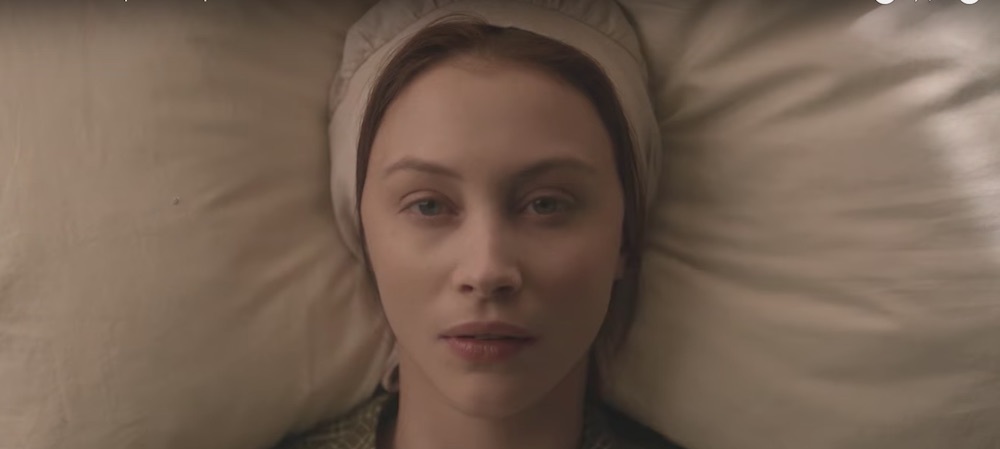The blockbuster success of The Handmaid Tale‘s this year has proven Margaret Atwood’s novels make for good television. The series premiere was Hulu’s most-watched ever and the show nabbed 13 Emmy nominations last week. Thankfully, another Margaret Atwood TV adaptation is on its way, and this time it’s from Netflix. Directed by Mary Harron (American Psycho), Alias Grace is based on Atwood’s 1996 historical fiction novel of the same name and follows the 19th-century case of accused murderess Grace Marks.
After serving 15 years in prison, Grace is sent to work as a servant for the prison’s governor. Since Grace is unable to remember any details about the deaths of her employer Thomas Kinner and his housekeepers, members of the nearby Methodist church believe Grace was wrongfully convicted. Hoping to prove her innocence, the minister hires a psychologist to dissect Grace’s dreams and childhood memories. What follows is a nail-biting mystery, in which both the audience and Grace’s supporters are unsure if she is a calculating, cold-blooded killer or the victim of a sexist and unjust system.
In the tantalizing new trailer, Grace takes pride in being a Victorian femme fatale, saying to the audience, “I’d rather be a murderess than a murder.”
The miniseries is written and produced by Canadian filmmaker Sarah Polley (who directed the Michelle Williams-led romance Take This Waltz). The adaptation was announced by Polley all the way back in 2012 and was originally intended to be a feature film. The show’s rollout is particularly unique: created as a collaboration between Canadian Broadcasting Company and Netflix, the show will premiere on CBC on September 25 and then stream internationally on Netflix on November 2.
It won’t be the first time CBC has explored the life of Grace Marks either. Prior to writing her novel, Atwood wrote the screenplay for the 1974 CBC television film about the Marks case, The Servant Girl. In the time between the film and the novel, however, Atwood says she changed her opinion on Marks and thinks she was innocent.
Credits
Text André-Naquian Wheeler
Screenshot via YouTube
